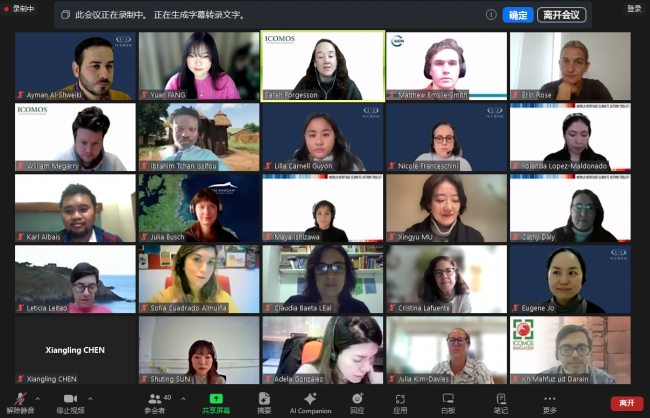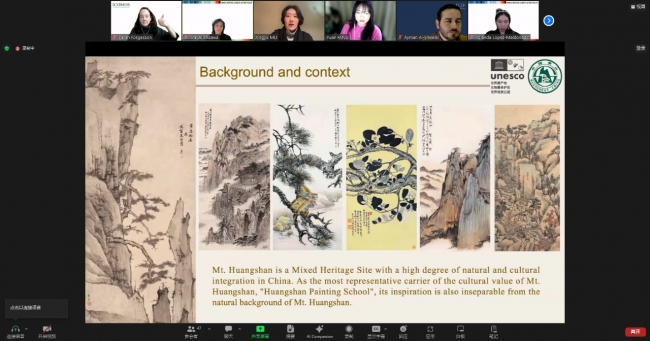| Mt. Huangshan first show in Climate Action for World Heritage |
| Author:Wang Ni PublishDate:2024-03-06 Hits:9852 |
From 20 to 28 February 2024, the "Capacity Development on Climate Action for World Heritage", co-organized by WHC, ICCROM, ICOMOS and IUCN, was successfully held. The aim of the meeting was to gather the strengths of many parties to comprehensively discuss, share knowledge and promote the integration of cultural elements into sustainable and resilient climate change response strategies while protecting World Heritage properties. The meeting was generally divided into two parts: Stocktaking and planning online workshops and Workshop on Application and Case Studies.
In the morning of 28 February Paris time, the third panel of case studies was introduced by Dr. Sarah Forgesson of ICOMOS. This was followed by presentations on eight heritage sites: Budj Bim Cultural Landscape in Australia, Rice Terraces of the Philippines Cordillera, Koutammakou and the Land of the Batammariba in Benin, Papahānaumokuākea in the United States, and Huangshan Mountain in China. The cases covered heritage conservation practices in different geographical and cultural contexts and provided participants with valuable references and insights.
The success of this workshop has not only strengthened the cooperation among international organizations in the field of heritage conservation, but also provided valuable experience and inspiration for heritage conservation practitioners worldwide. In the future, we expect more Chinese heritage sites to actively participate in international exchanges and co-operation, and through the joint efforts of all parties, to promote the capacity building of climate action for World Heritage, and to make active exploration and practice for the protection of the common cultural heritage of mankind.
Contributed by: Wang Ni (Intern) |
- Lecture: Preventive Archeology
- New Year Message | UNESCO World Heritage Centre for Training and Research in the Asia and Pacific Region (Shanghai) Extends to You Its Sincere New Year Wishes!
- Review | Cooperation between Xiamen, CNR and WHITR-AP Shanghai
- Review | Yunlong International Workshop on Vernacular Heritage
- Review | The Heritage Educational Landscape Exhibition
- Review | UHC-HEI 1st General Assembly
Copyright © 2009-2012 World Heritage Institute of Training and Research-Asia and Pacific (shanghai)




